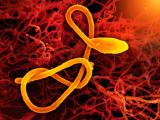For the second day in row, Rwanda’s health ministry reported no new confirmed Marburg virus cases or fatalities, keeping the outbreak totals at 58 cases, including 13 people who died from their infections.
At a briefing today hosted by the Africa Centres for Disease Control and Prevention (Africa CDC), health officials said the outbreak is under control, with most cases part of two hospital clusters in Kinshasa.
Rwanda’s health minister, Sabin Nsanzimana, MD, PhD, said the case-fatality rate (CFR) is currently 22%, which is much lower than previous outbreaks, especially for a disease with a CFR that can be as high as 80%. He said that early identification of cases, good supportive care, and the use of antivirals and monoclonal antibodies have saved lives.
Fifteen people have recovered from their infections, and 30 are still in isolation and treatment.
The country began immunizing people at high risk for infection, mainly healthcare workers in Kigali, last weekend. Rwanda had received an initial shipment of about 700 doses of an investigational vaccine from the Sabin Vaccine Institute and is using it as part of open-label clinical trial using a ring vaccination strategy. Nsanzimana said the current trial design is designed to protect those most at risk and that a delayed-dose arm of the study will be conducted during a later phase.
So far, 346 doses have been administered.
Knocking down rumors, concerns over US travel measures
At today’s briefing, health officials disputed a report that the initial patient tested positive in early September, well before the country declared an outbreak. Nsanzimana said a test on the patient’s sample was conducted on September 26, with a positive result announced the next day. He said an investigation into the source of the virus is still under way and that the results of genetic sequencing and serology findings will be available in a few days.
As for the news of a suspected Marburg case in the Democratic Republic of the Congo (DRC), Jean Kaseya, MD, MPH, director-general of the Africa CDC, said the group has been following the alert, which came from Goma, and that tests on the patient’s sample were negative for Marburg virus.
When asked about an upgraded travel advisory from the United States and an announcement about airport screening, Kaseya and Nsanzimana said they were disappointed by the developments. Nsanzimana said Rwanda has taken an aggressive approach in identifying and monitoring contacts, as well as screening outbound travelers. He urged countries to follow the science in making their travel recommendations.
On October 8, Africa CDC issued a statement urging countries to avoid implementing travel bans or restrictions targeting African nations in response to mpox and Marburg virus outbreaks.
Though officials praised the United States for its support in the outbreak, Kaseya said he wished US officials would have discussed the issue and scientific evidence for the recommendations with the Africa CDC.


















